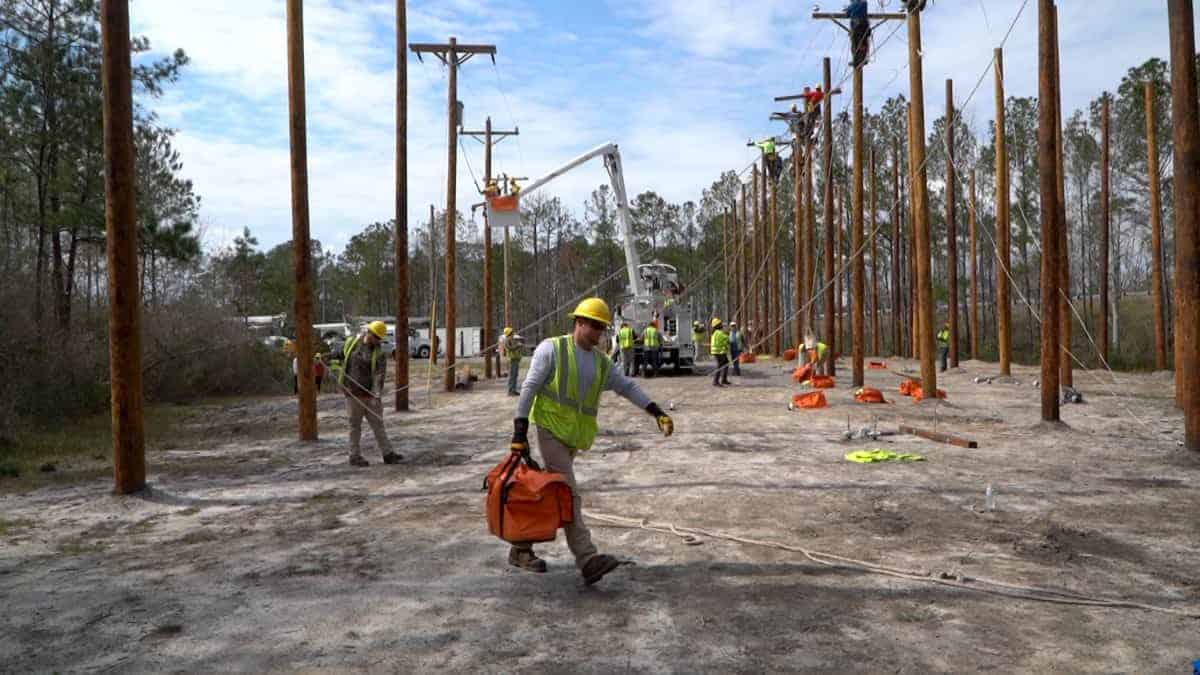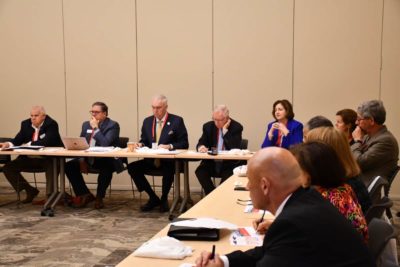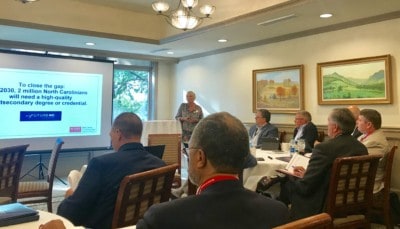

This piece was originally published by the NC State College of Education. It is part of the monthly “Ask the Expert” series in which faculty answer some of the most commonly asked questions about education.
myFutureNC, a statewide commission focused on improving educational attainment, has set a goal to have 2 million North Carolinians hold postsecondary degrees or credentials by 2030 to ensure there are enough qualified employees to meet future workforce demands.
Meeting this goal — and ensuring those postsecondary degrees and credentials leads to greater economic mobility for more North Carolinians — requires a focus on workforce development, said NC State College of Education Associate Professor James Bartlett, Ph.D., and Audrey Jaeger, Ph.D., Alumni Distinguished Graduate Professor and executive director of the Belk Center for Community College Leadership and Research.
Workforce development is an economic and human resource development approach to postsecondary education that results in employees being trained with valuable labor market skills that lead to economic sustainability for residents, businesses, and industry in the region.
Workforce development is also necessary to foster economic growth, said Bartlett, who studies the topic.
But reports show North Carolina currently relies on talent from outside the state to grow its economy. To improve local talent, alignment between community college offerings and labor market needs is required, Barlett and Jaeger said. Alignment means that businesses get people trained to fill their open positions and that individuals can pursue credentials and develop skills that match up with job opportunities where they live.
“Businesses and industry sectors need to have people trained for the jobs that are in their regions,” Bartlett said. “We will still bring people in from outside to fill those jobs, but the people in North Carolina won’t benefit without alignment and local workforce development.”
There are two approaches to workforce development. The first is a place-based approach, which builds programs to address employment needs and barriers within specific regions. The second is a sector-based approach, which focuses on the industries in which new employees are likely to be hired now and in the future.
Community college leaders, Bartlett and Jaeger said, are in a unique position to bring the two approaches together by examining the prevalent and emerging industries in their communities and ensuring their course offerings align.
“Community college leaders are an essential component of the workforce development conversation,” Jaeger said. “They need to provide a vision for their institutions about how they develop talent and align their programs, credentials and activities with the needs of the region in terms of economic development.”
The NC State College of Education’s Belk Center for Community College Leadership and Research is supporting community college presidents and trustees with workforce alignment and credential attainment by providing them with the necessary information, tools and skills to understand and address local workforce needs. Bartlett and Jaeger are part of a team at the Belk Center that is comprised of faculty, researchers and former community college presidents. They support North Carolina community college presidents to use local and regional data to develop partnerships that align credentials with workforce needs.
In September, for example, the Belk Center hosted a symposium that gave community college presidents an opportunity to take an in-depth look at regional and college-specific data related to enrollment, programs and labor market outcomes for students. The event allowed community college presidents to assess how their programs align with employer needs in their regions and consider how to ensure students earn credentials with labor market value.
One way to help graduates develop skills that meet labor market needs, Bartlett said, is for community colleges to partner with local businesses to form apprenticeship programs. Apprenticeships allow students to receive on-the-job training related to the degree or credential they are earning and often graduate with a promise of employment.
Bartlett’s case studies on apprenticeship programs show they have been effective, both in North Carolina and nationwide, in ensuring that students receive training that closely aligns with the needs of employers in the region.
“Without those types of programs, employers are telling us that they would not be able to do the work that they need to do in their businesses,” he said.
While the work of myFutureNC is supporting education and business leaders in their efforts to increase credentials of value, Bartlett and Jaeger emphasized that any increase needs to align with the workforce needs of North Carolina in order to move the state’s economy forward.
Equally important to this goal is the work of community colleges in assuring that students are successful in accessing programs of study in high-demand fields that offer opportunities for economic stability. The Belk Center provides the necessary support to college leaders in their efforts to offer this equitable access to credentials of value.
“For North Carolina to prosper, education must align with business needs and offer degrees and credentials that provide the skills needed by employers today and in the future,” Bartlett said. “This is important for all North Carolinians to create a state that will attract business, grow economically and be a place where everyone has the potential to earn a family sustainable wage.”
Editor’s note: Ryan Clancy produced the video in this perspective.




